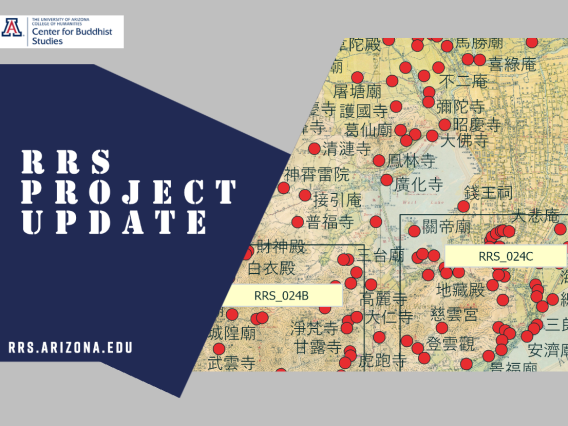
In recent years, along with the rise of Digital Humanities and database technologies, the field of Chinese studies also underwent a digital revolution with the applications of new electronic tools in different subfields. Despite the increased funding in these digital projects, only a few achieved long-term sustainability and even fewer generated in-depth analysis of data which has deepened our understanding of Chinese society and culture.
The central research question is how RRS interacts with other regional formations of economic, cultural, and social existences and contributes to the emergence of the unique “Chinese regionalism” which has shaped Chinese history and continues to influence her future in today’s interconnected global settings. Supplemented by thick descriptions and spatial narratives through mapping local religious sites, we hope to extend the RRS method to world religions through developing and refining our methodology. Currently, we focus intensively on the Hangzhou area in China in association with our Hangzhou Buddhist Culture project.
(https://cbs.arizona.edu/hangzhou-buddhist-culture-project)
Project Website: https://rrs.arizona.edu
Map Gallery: https://rrs.arizona.edu/maps/
Starting in the Fall of 2019, our RRS team had made incredible progress in documenting and visualizing the religious landscape of Hangzhou, China throughout Chinese history (with some maps on Taiwan and Japan as well). With a total of 46 maps available on the project website, some of the themes include:
- City wall boundaries in Hangzhou in Chinese history
- Distribution of Buddhist temples in Hangzhou from the Song dynasty to the modern period
- Distribution of Daoist temples in Hangzhou in the modern period
- Survey of lineage, popular religion in Fuqing, Fujian Province in the modern period
- Map-overlay content with William Skinner’s macroregions in China
There is a major revamp of the RRS Project expected in Spring 2022. New contents include new layout and design, new maps and visualization approaches. Most importantly, a story map visualization of a Chinese Zen master Yinyuan (Japanese: Ingen) who founded the Japanese Obaku tradition. Stay tuned for upcoming updates throughout the year!
The RRS Team:
Principal Investigator: Dr. Jiang Wu and Dr. Philip Stoker
GIS Assistant: Bishan Zhao, Ziling Wan, Jeffrey Liu
Data Assistant: Jinhui Wu, Gong Yi, Youteng Bi, Ziling Wan, Tianyu Lei, Yi Liu, Xinrui Zeng, Xiaoxuan Li, Jeffrey Liu

